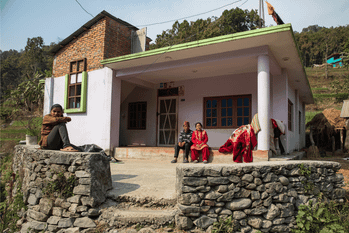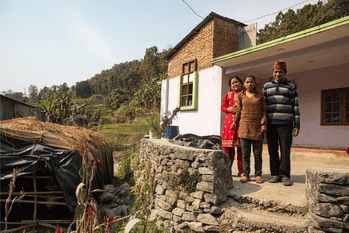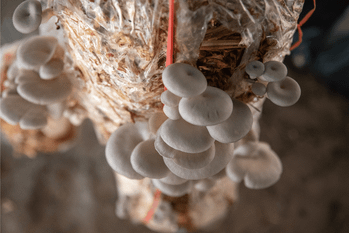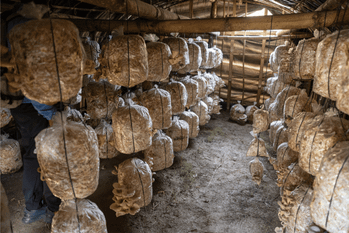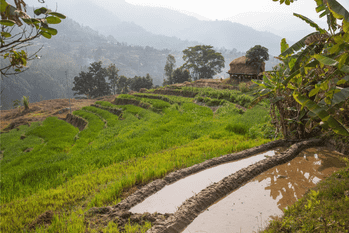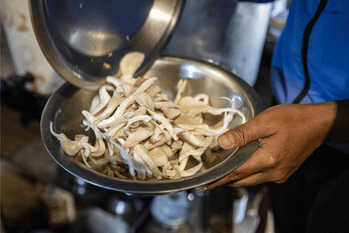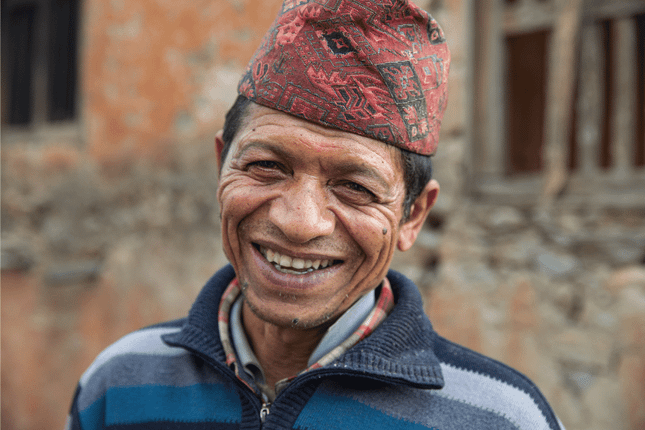
Nepalese Farmer Lokbahadur Situala: Cultivating Hope and Income Through Mushrooms
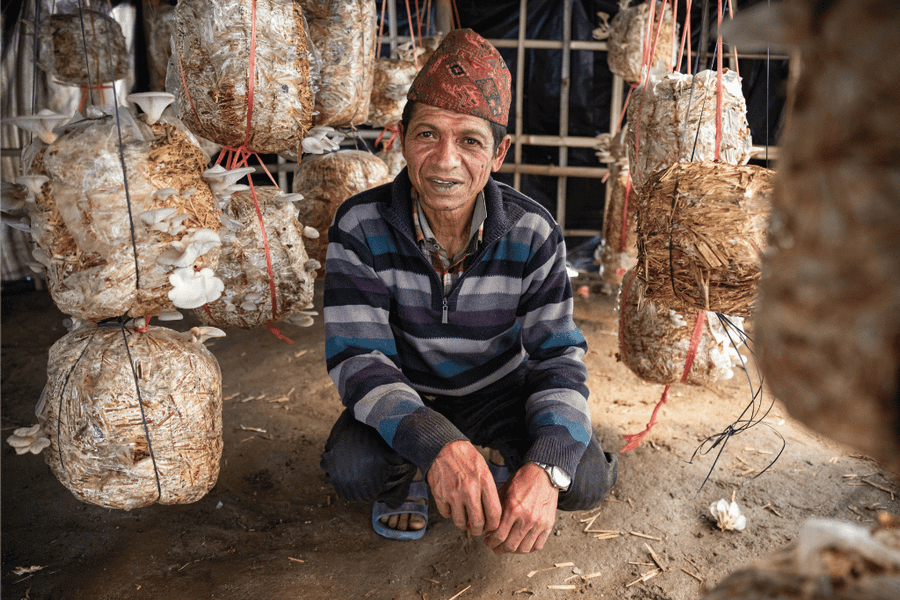
Bending over, Lokbahadur tends to his oyster mushroom crop in a spacious hut covered by black tarps. These tarps cluster in sets of three from the ceiling, creating a warm and humid environment perfect for optimal mushroom growth. With a content smile, Lokbahadur proudly showcases the emergence of tiny mushrooms from the rice straw within a growing cylinder – a sack designed for cultivation. This newfound yield not only provides sustenance for his family but also contributes to his grandchildren's education.
Lokbahaur Situala is 60 years old. The Nepalese farmer with the infectious laughter lives with his wife, son, daughter-in-law and three grandchildren in the Panchkanya community in the Nuwakot district of southeastern Nepal. He has participated successfully in an inclusive community development initiative spearheaded by Malteser International and their partner organizations RSDC and KOSHISH. This project assists local low-income farmers among other things in exploring alternative financial avenues, like the cultivation and sale of edible mushrooms.
Poverty, natural disasters, and the impact of the pandemic
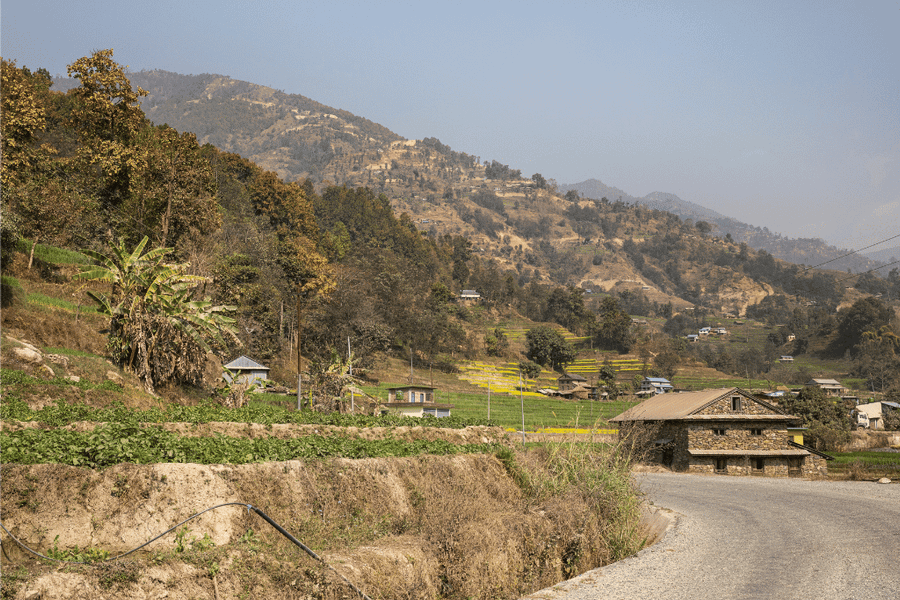
Situala's home country Nepal is one of the fifty poorest countries in the world. More than a third of children under the age of 5 suffer from malnutrition. Nepal's vulnerability to disasters due to its geographical location and climate has frequently hindered its development progress, and the COVID-19 pandemic further disrupted the economy, especially the tourism sector. The result was a setback in poverty reduction and developmental gains achieved prior to the pandemic.
Even within Nuwakot district, life has been a struggle for years. The devastating 2015 earthquake left its mark, destroying or damaging numerous homes, while clean drinking water remains scarce in many communities. The economic landscape mirrors this hardship, with a significant number of the rural population grappling to meet basic needs and sustain their families and farms.
Lokbahadur Situala is one of 17 local farmers so far that we, together with our Nepalese partner organizations RSDC and KOSHISH, are able to support within our holistic resilience strengthening project to find a new opportunity for financial income through mushroom cultivation.
Why mushrooms?
Mushroom cultivation presents a promising opportunity for Nepal, supported by a 2019 study that highlighted the country's potential to become a major mushroom-growing region. The favorable climate, affordable raw materials, and the possibility of indoor cultivation alongside existing activities make this industry appealing. Lokbahadur Situala attests to the simplicity of managing the mushrooms and the farm, with the main challenge being sourcing the spores. The project provided initial spores and materials for constructing cultivation huts and cylinders. Oyster mushrooms were chosen for their demand in kitchens and good sales potential. The farmers received continuous guidance from local partners, building upon their previous agricultural experience.

Lokbahadur's cultivation process involves blending mushroom spores with rice straw and arranging them within plastic bags. These "cylinders" are hung in simple huts with black foil walls, maintaining the ideal warmth and humidity that mushrooms thrive in. A single spore pack can yield around 15 kg of mushrooms. The project's overarching aim is to enhance the resilience of communities affected by disasters, both economically and psychologically. This goal is particularly significant given the prevalent stigma around mental health, which affects not just the community but Lokbahadur's family personally, as one of his grandchildren faces mental challenges. He says, "We support my granddaughter. Now I have a little extra income from the mushroom farm that I didn't have before."
The income generated by the farm has begun to alleviate the strain on his family. Lokbahadur reserves some mushrooms for personal consumption, distributes others among relatives and community members, and sells the rest. Thanks to the proceeds from these sales, his grandchildren are now able to complete their education, providing a brighter future for them. Lokbahadur intends to persist in this endeavor.
The project, initiated in 2020, has not only transformed Lokbahadur into a mushroom farmer but also bestowed upon him the role of overseeing the training center. The fellow farmers trained under this initiative are successfully managing their mushroom farms, and the project's impact is growing, with more farmers expressing interest.
(August 2023)

